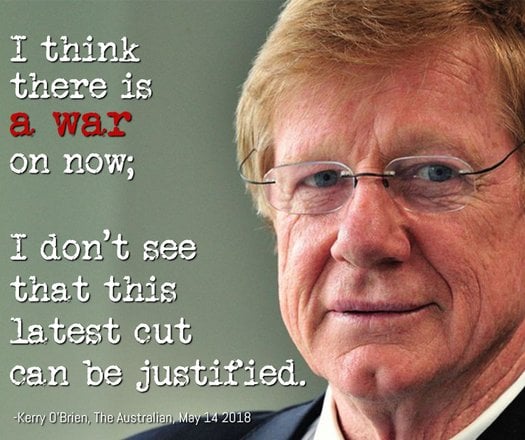
Hands Off Our ABC is a community and advocacy campaign co-ordinated by the two unions that represent the vast bulk of employees at the ABC: the Media, Entertainment & Arts Alliance and the Community and Public Sector Union.
Our goal is an editorially-independent ABC that is fully-funded by the government and meets its charter as a comprehensive national broadcaster, that is resourced to tell Australian stories across multiple platforms, and positioned to take advantage of new technology to retain its position as the most trusted and reliable source of news and entertainment in Australia.
Hands Off Our ABC is a community and advocacy campaign co-ordinated by the two unions that represent the vast bulk of employees at the ABC: the Media, Entertainment & Arts Alliance and the Community and Public Sector Union.
Our goal is an editorially-independent ABC that is fully-funded by the government and meets its charter as a comprehensive national broadcaster, that is resourced to tell Australian stories across multiple platforms, and positioned to take advantage of new technology to retain its position as the most trusted and reliable source of news and entertainment in Australia.
The weekly science program Catalyst and 11 specialist staff are to be axed under a radical plan by ABC management. Take action to convince ABC managing director Michelle Guthrie to retain specialist science journalists for ABC TV by adding your name to this open letter, signed by 64 of Australia’s most eminent scientists.